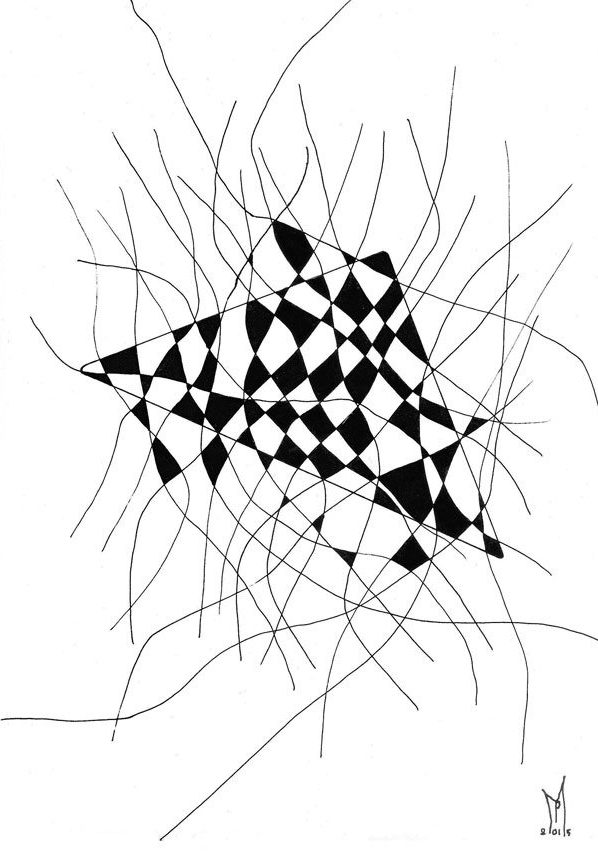
Editors’ note: The following excerpts are taken from Margaret Wheatley’s new book, Who Do We Choose to Be?: Facing Reality, Claiming Leadership, Restoring Sanity (Berrett-Koehler Publishers, 2017), with permission.1 The article is from the Summer 2017 edition of the Nonprofit Quarterly, “Nonprofit Graduation: Evolving from Risk Management to Risk Leadership.”
Leadership
Leaders are essential for their vision and insight. Keeping “eyes on the prize” is a leadership function. But the danger for visionaries is blind followership and a cult mentality where people surrender their free will and common sense to the leader even if the leader abhors this. (And too many enjoy it.)
Leaders carefully and consciously attend to the integrity and actions of the movement: Do actions embody its values? Does it need to shift tactics and strategy? Does it need to rest and reorganize itself or seize the moment and push forward?
The work of social change requires a commitment to personal change. Leaders must be self-aware, noticing how they’re being influenced and changed, in both positive and negative directions. Embodying the values is the only way to ensure their vitality.
Self-Organizing
Self-organizing requires a clear sense of identity known to everyone in the organization and the personal autonomy to figure out how to put that identity into action moment by moment.
There will always be differences over which actions to pursue, and that’s as it should be. What’s critical is that the identity is truly visible in every action. In organizations, identity is the values and principles we establish at the beginning. And then, as work gets done and decisions get made, the identity is also the culture that forms as patterns, norms, and expectations. Where there is strong agreement on who we are and sufficient trust in one another, self-organizing develops astonishing capacities and creativity. Terrorists and social justice movements each become more effective as they learn how to work with self-organization.
The first essential act for leaders of a self-organizing system is to keep watch over the identity. It is foolish to think it won’t change as people make their own decisions about their actions. They will always shift it toward more extreme in order to make a difference and get attention. It is equally foolish to get so distracted by events and crises that you stop watching what’s happening to the identity. If you lose focus and get absorbed in crises, you end far from where you intended to be—more controlling, more bureaucratic, less trusting, more demanding, exhausted, and wondering what happened. (I think you know this pattern. We all do.)
The second essential act of leadership is to ensure that people are using the identity to determine actions. This is especially important in a crisis when reactivity is high and there seems to be no time to reflect.
In my experience, very few leaders take advantage of order for free. They don’t quite trust the power of identity to ensure coherence and continuity. As events intensify and pressures increase, control creeps in and the slippery slope takes shape. Therefore, another essential skill for leaders is self-awareness and the ability to notice who you are becoming as you respond to unending pressures. Where has fear or distrust begun to influence decisions? Where have you asserted control? Was it necessary? What happened to relationships as a result? This quality of self-reflection isn’t easy, and even if you commit to it, it becomes a casualty of crises and disappears. The best way to ensure that you reflect honestly about your own behavior is to have one or more people who will speak truthfully to you. And whom you know to listen to because they have your best interest at heart.
What I’ve described here requires hierarchy, not a structure usually associated with self-organizing systems. Networks are self-organizing and they don’t have hierarchy. But, as I’ve already noted, self-organization requires sane leaders.
Someone has to stay alert to what’s happening to the identity as decisions are made and work gets done. If we’re doing well, someone has to ensure that our smugness and arrogance don’t seal us off from change. If we’re doing badly, someone has to stop us from hunkering down and becoming overly defensive or beating ourselves up for having failed.
Even though, in my early years of promoting participation and self-organization, I was critical of leaders at the top, I’ve come to see that people need visionary leaders. Not charismatic demigods or Masters of the Universe, but people they trust because they embody the values and qualities we’re working toward. Leaders don’t have to be perfect, and it helps to make one’s personal struggles and challenges visible. But people need to see what’s possible. That it is possible to live with integrity. That humans can still live and work well together. That we can still behave as human human beings, Homo sapiens sapiens.
This is why we need leaders.
Sign up for our free newsletters
Subscribe to NPQ's newsletters to have our top stories delivered directly to your inbox.
By signing up, you agree to our privacy policy and terms of use, and to receive messages from NPQ and our partners.
And why leadership can be a noble profession.
The critical action for leaders is to ensure that what gets set in motion at the start of an organizing effort is healthy. The “self” of self-organization is the critical variable.
Who Do We Want to Be?
What are the values, intentions, principles for behavior that describe who we want to be? Once established, are these common knowledge, known by all? As we work together, do we refer to our identity to make decisions? How do we respond when something goes wrong? Do we each feel accountable for maintaining the integrity of this identity?
These questions lie at the epicenter of creating a healthy self-organizing group or organization. They bring us back to alert, open behaviors—the true sanity of any living system. A living system is a learning system.
If we are working well with emergence, these questions become part of our everyday perceptions. We don’t ask them occasionally or once a year at a retreat. We all have to become more observant, more open to differing perceptions, more open to new interpretations. However, only the leader is in the position to see the whole of the organization. No matter how willing people might be, everyone is overwhelmed and consumed with their own work. Sane leadership is developing the capacity to observe what’s going on in the whole system and then either reflect that back or bring people together to consider where we are now.
This is working with emergence. And self-organization. In a dynamic, organic way.
Action Learning
You have a theory of action. As you put that theory into action, as you interact with those in power, new strategies and practices become clear. You learn how the system works as you work with and challenge the system. You adapt to be more effective in reaching your goals.
Vigilance around behaviors and tactics is essential so that those acting to change things don’t shift back to the old behaviors they’re now opposing. You need to expect that the values and practices of the dominant culture will show up in you if you were raised in that system.
Time to reflect and learn from experience is essential. Knowing how to host exploratory conversations and support reflective processes are paramount leadership skills.
Thinking well, with insight and discrimination, are sources of power. Two essential skills are dialectical thinking to explore paradox, difference, and the evolution of issues; and systems thinking to determine root causes so energy is not wasted on superficial actions.
Note
- Margaret J. Wheatley, Who Do We Choose to Be?: Facing Reality, Claiming Leadership, Restoring Sanity (Oakland, CA: Berrett-Koehler Publishers, 2017). Excerpts were taken from (in order of appearance) pages 161, 167–69, 231–32, and 160; some section heads do not come from the original publication, and some paragraphs were omitted and some were reordered.
This article was originally published on August 9, 2017.












